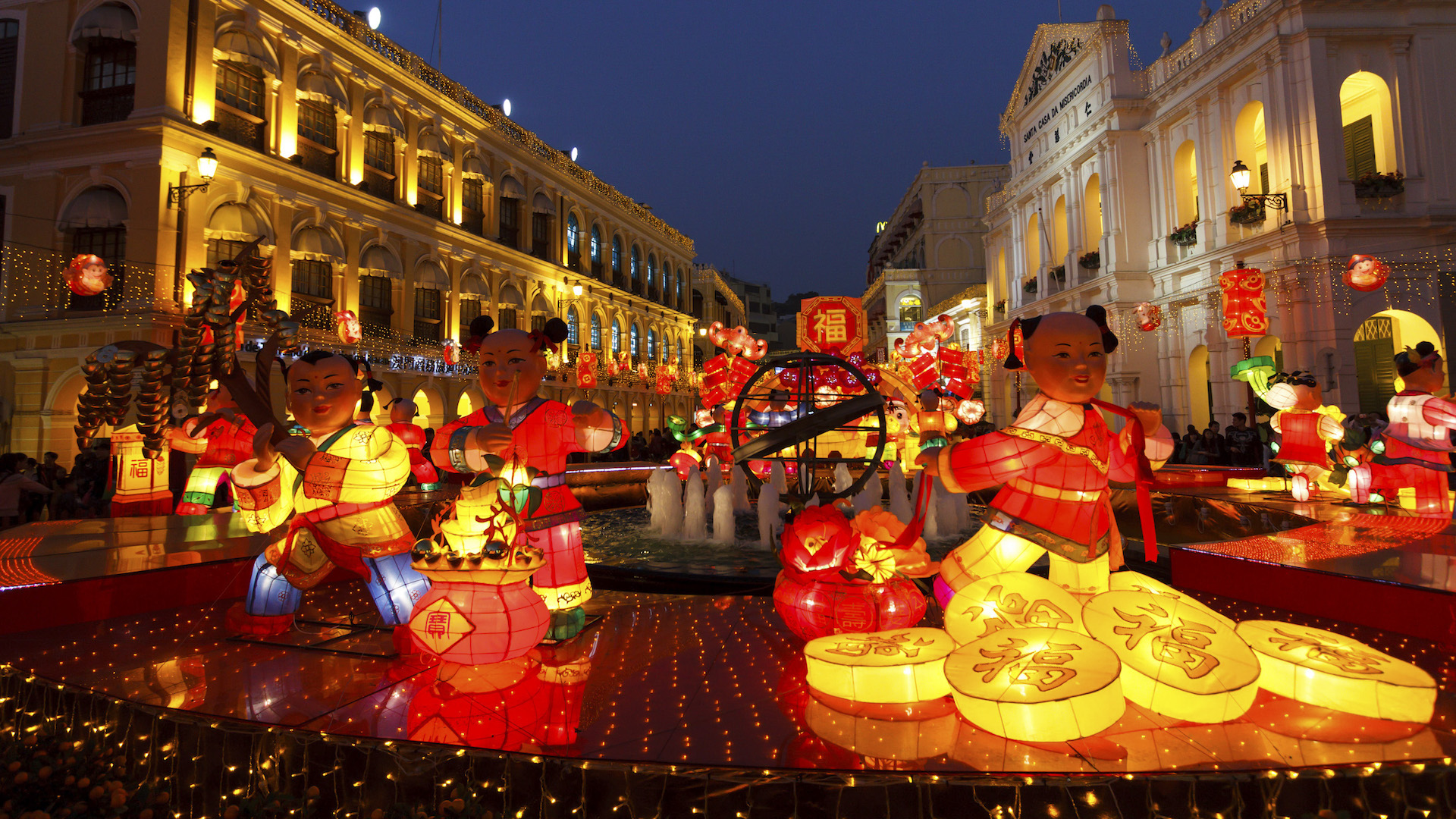
The Year of the Dog has arrived and Chinese people around the world are celebrating Lunar New Year, also known as Spring Festival.
As with many widely celebrated holidays, if you look closely, you can see religious inspiration. Traces of Chinese folk religion permeate the fifteen-day holiday. Some Chinese follow the traditions out of fear of angering the gods of their folk religions.
Many Chinese, however, don’t perceive their practices to be any different than that of an American bride who considers it bad luck for the groom to see her before their wedding ceremony. And, like the American bride, many Chinese don’t know the origins of the practices. It’s just a part of their long cultural heritage.
Regardless, understanding the roots of this major worldwide celebration can help us better know our Chinese friends, neighbors, and coworkers. Take a look at eight Chinese New Year traditions with ties to folk religion.

Photos by Luke In
1. Animals of the Chinese Zodiac
In China, it’s not necessarily an insult to call someone a pig, a rat, or even a dog. Animals represent each year of a twelve-year cycle and include the rat, ox, tiger, rabbit, dragon, snake, horse, goat, monkey, rooster, dog, and pig.
Your animal, it’s believed, determines your personality traits and destiny. Some popular legends contend that Buddha started the animal-based Chinese zodiac, while others say it was the Jade Emperor.
Tell a Chinese person which animal represents your year of birth, and most can determine how old you are. Look here to find out which animal was assigned to your birth year.
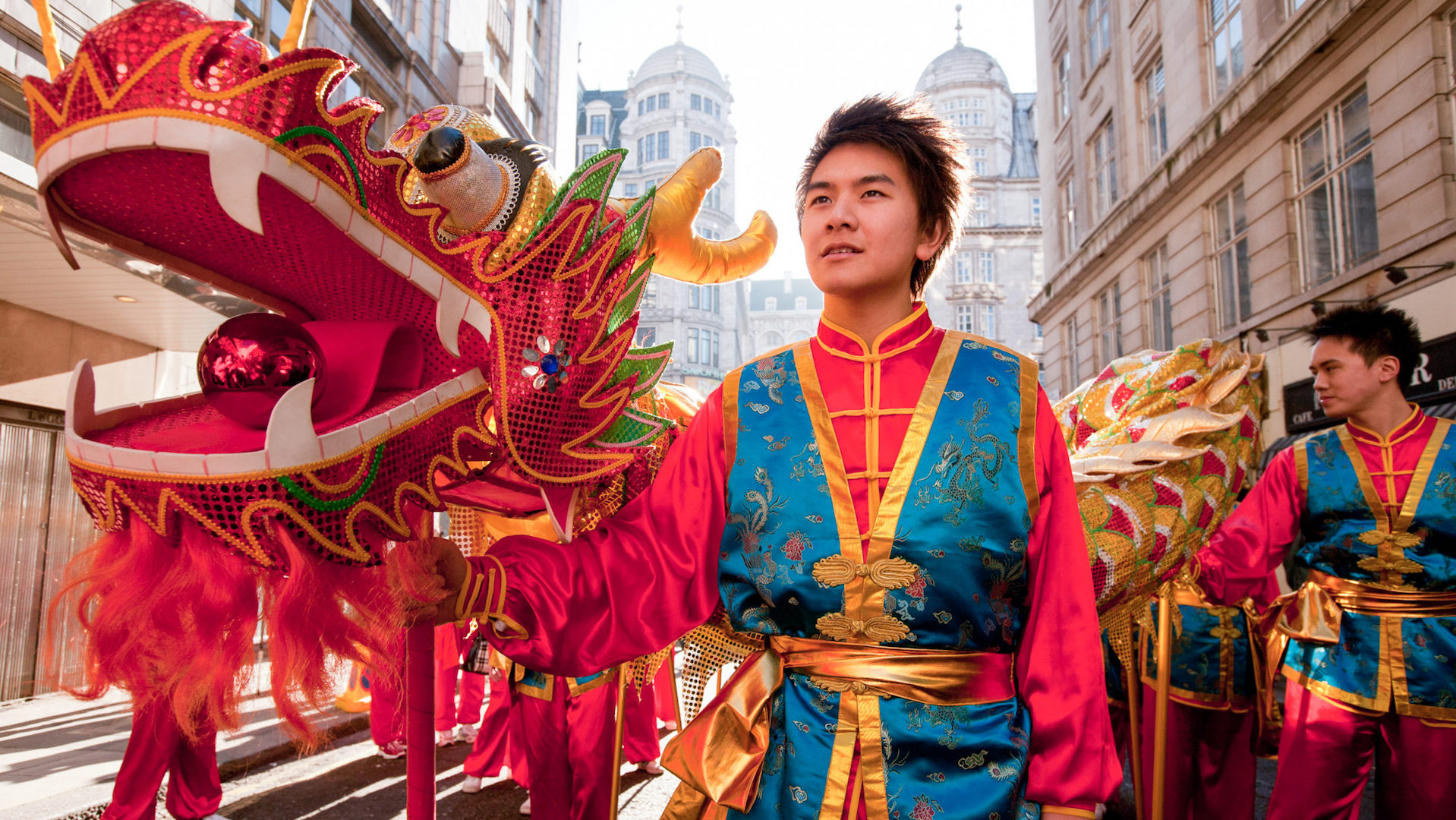
Photo by Hugh Johnson
2. Dragon Dance
Dragons are helpful creatures according to Chinese legends. They symbolize power and dignity and are believed to chase away evil spirits. Chinese New Year morning parades feature troupes of dragon dancers running through streets to the quick cadence of drums. Performers use poles to hoist a dragon figure in the air in undulating movements while wending along a serpentine parade route.
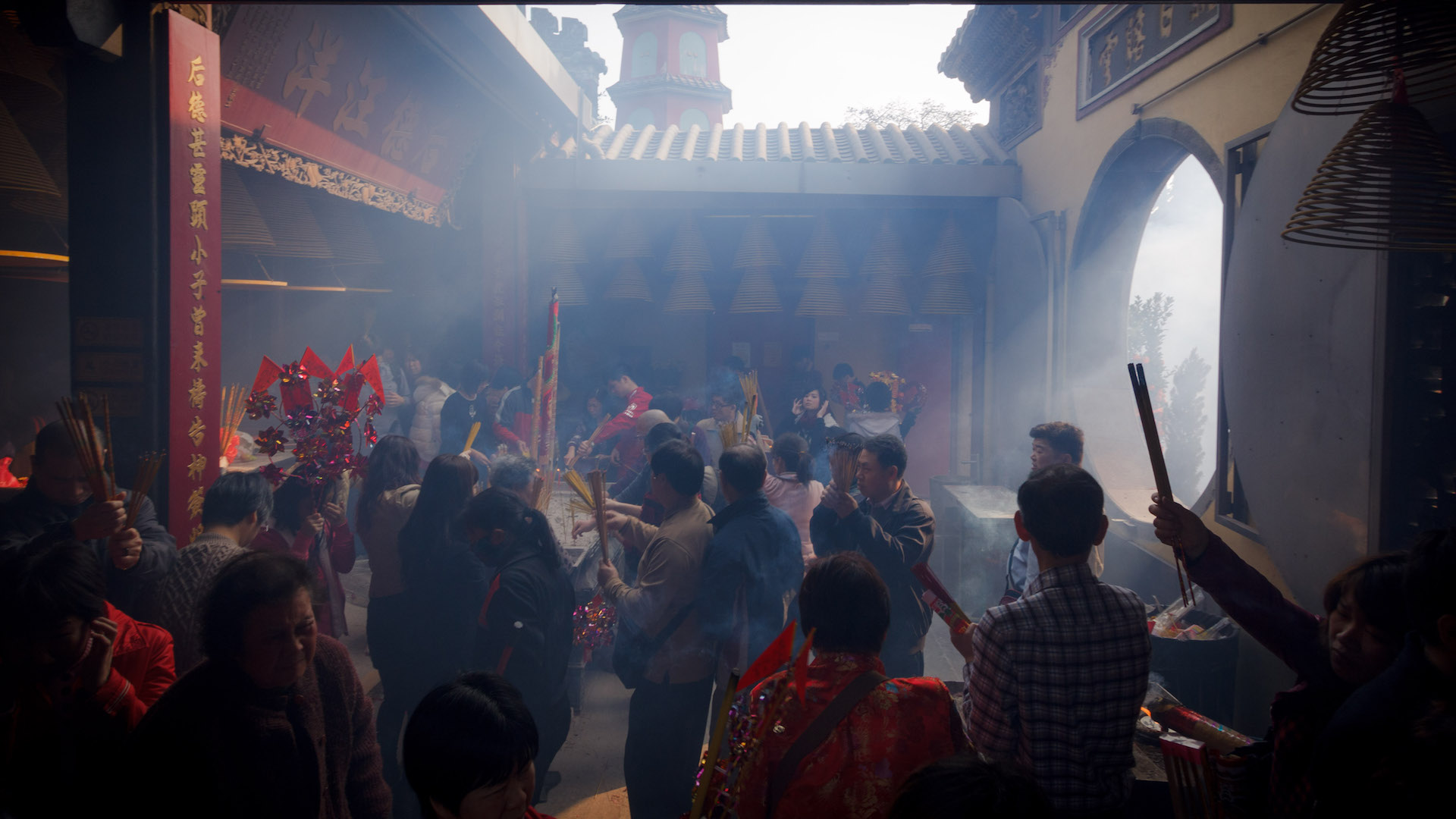
Photo by Hugh Johnson
3. Temple Visits
Chinese people who are serious about their traditional belief system pay to enter temples—often Confucian, Buddhist, or Taoist temples. They worship their ancestors or deities of their religious traditions to procure blessings for the year ahead. For many, it will be the only trip to the temple for the entire year.
A few will confess they aren’t sure the gods even exist, but they don’t want to take any chances. If disaster strikes in the year ahead, they will trace it back to their failure to pay homage to spiritual forces at the lunar festival.

Photo by Luke In
4. A Break from Chores
People in China wear new clothes for the New Year, but they won’t be taking baths, cleaning house, or taking out the trash on the first day. Spring cleaning has already occurred during the weeks leading up to New Year’s Day. Any cleaning that takes place on the first day of the holiday may sweep, toss, or wash away all their good luck for the year.
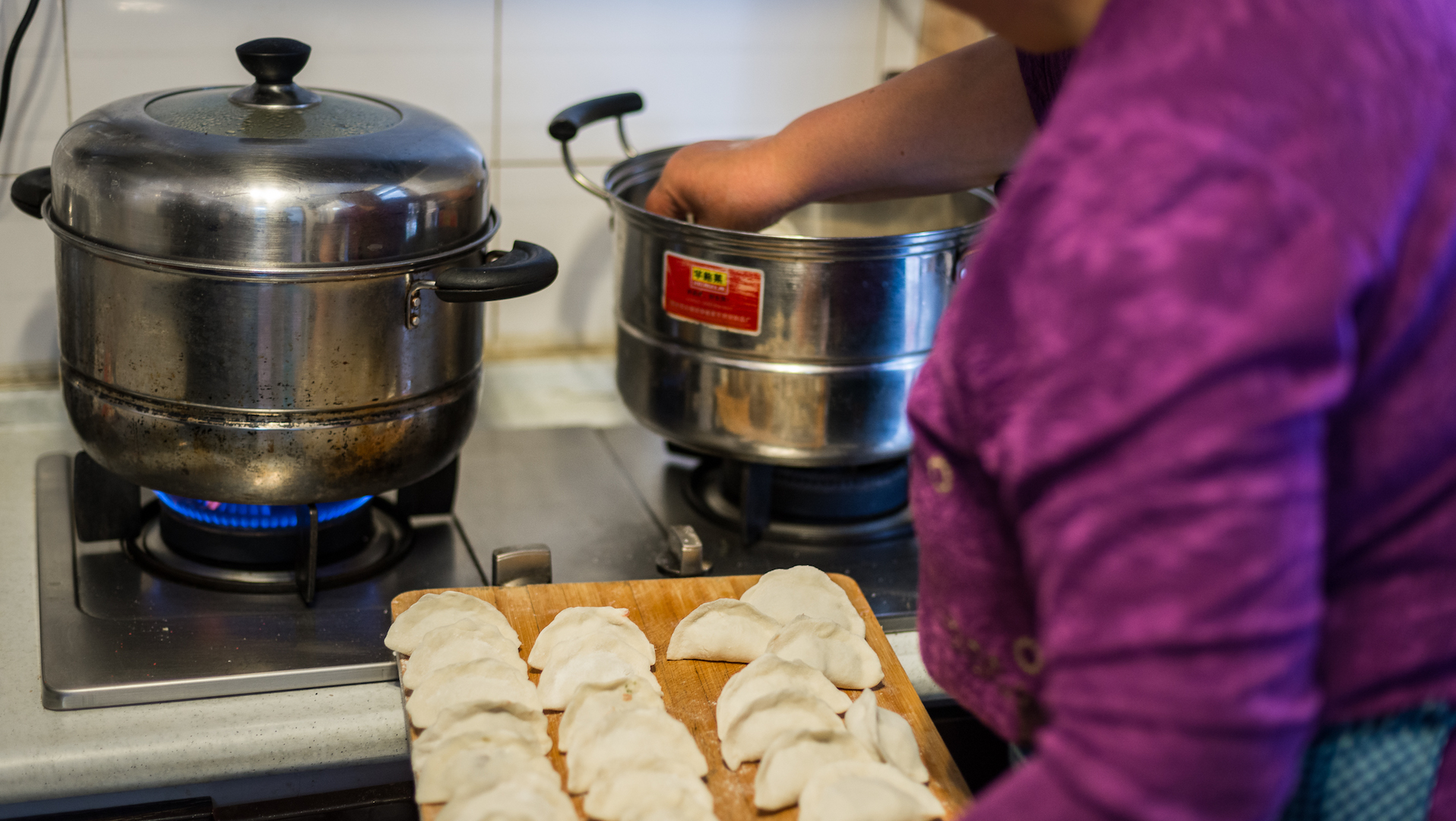
Photo by Luke In
5. Auspicious Food
Families in northern China gather on Chinese New Year’s Eve and stuff homemade Chinese dumplings to be eaten the following day. The hot, tasty dumplings resemble the shape of gold ingots, and, like almost all new year food, symbolize something important to their lives—in this case, wealth for the year to come.
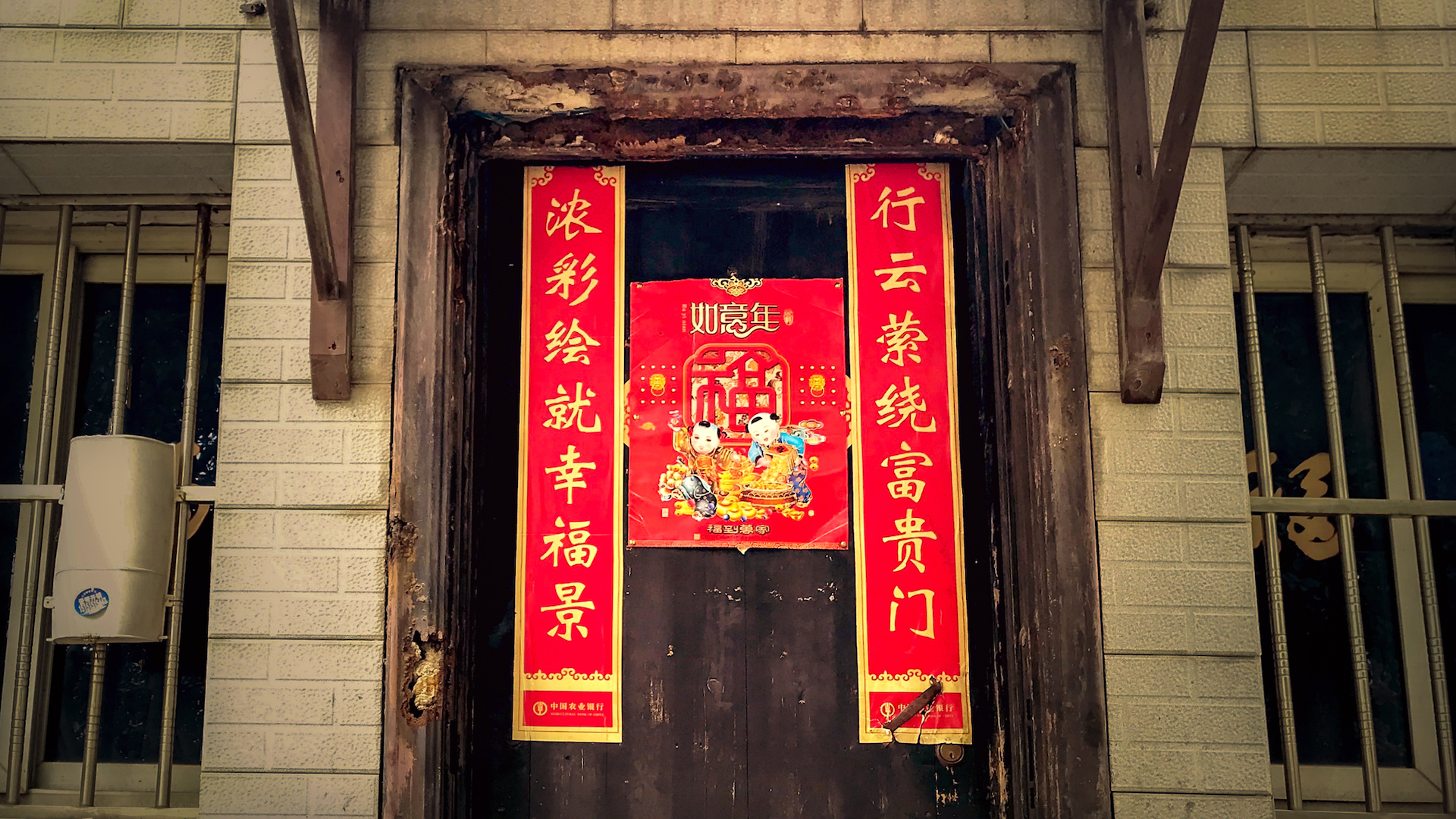
Photo by Luke In
6. Door Decor
Couplets—red strips of paper with short poems written on them—hang on the sides and the tops of house doorways. A red square with the Chinese character fu, which can be translated as luck or blessing, hangs on the door. Some Chinese hang the character upside down to symbolize that luck will be falling on them from heaven.
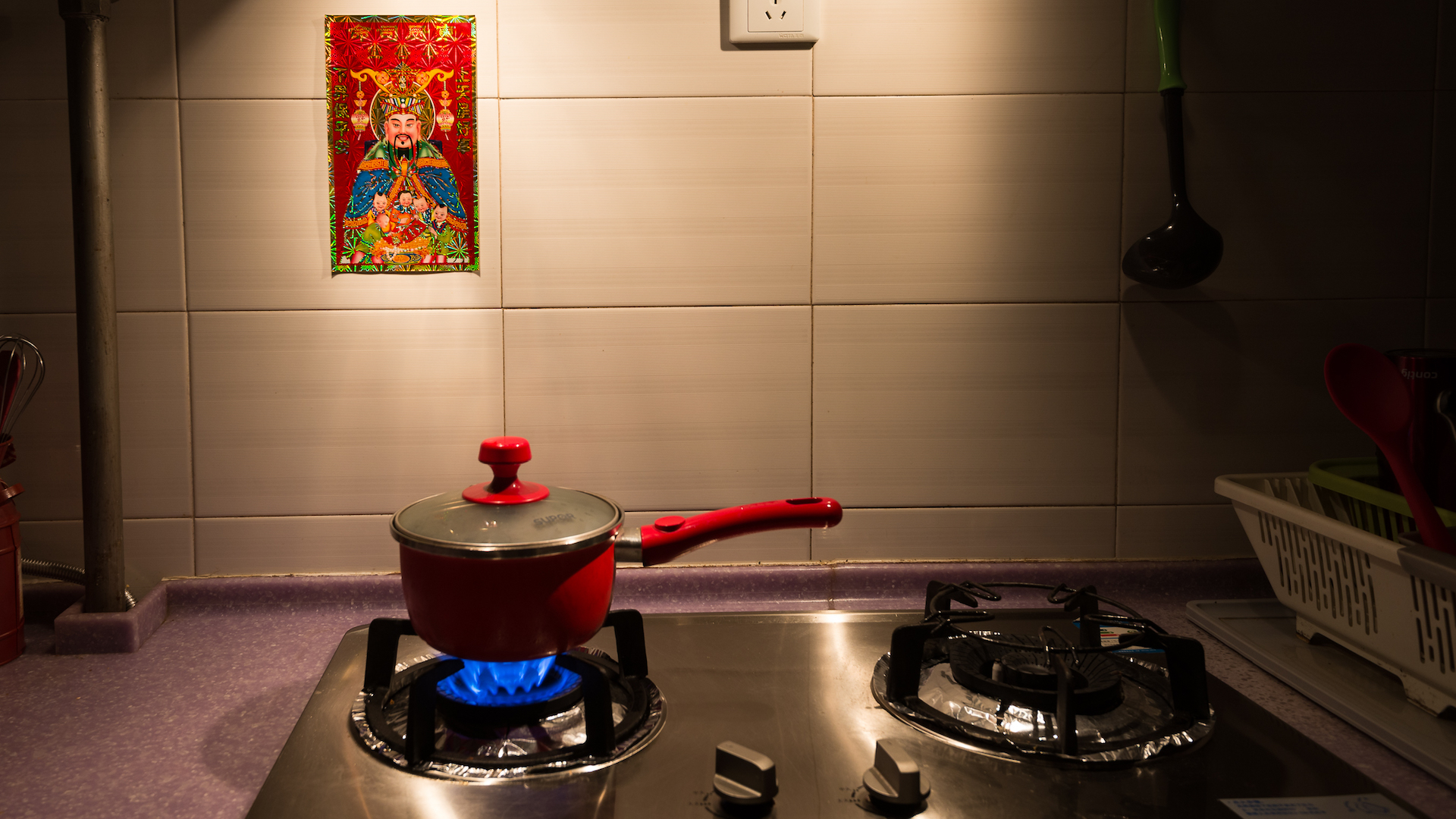
Photo by Luke In
7. The Kitchen God
A week before Chinese New Year, tradition says that the kitchen god, Zao Shen, who has been checking on the family all year, ascends to heaven to report on every household. If the family has treated him well, he’ll report to the Jade Emperor in heaven that the family should not be punished in the coming year.
In order to appease the kitchen god, some will bribe him with sticky rice cakes called nian gao, a Chinese homonym for “higher year.” Some households hang a paper image of the kitchen god near their stoves throughout the year and will burn the paper image on New Year’s Day as a type of offering.
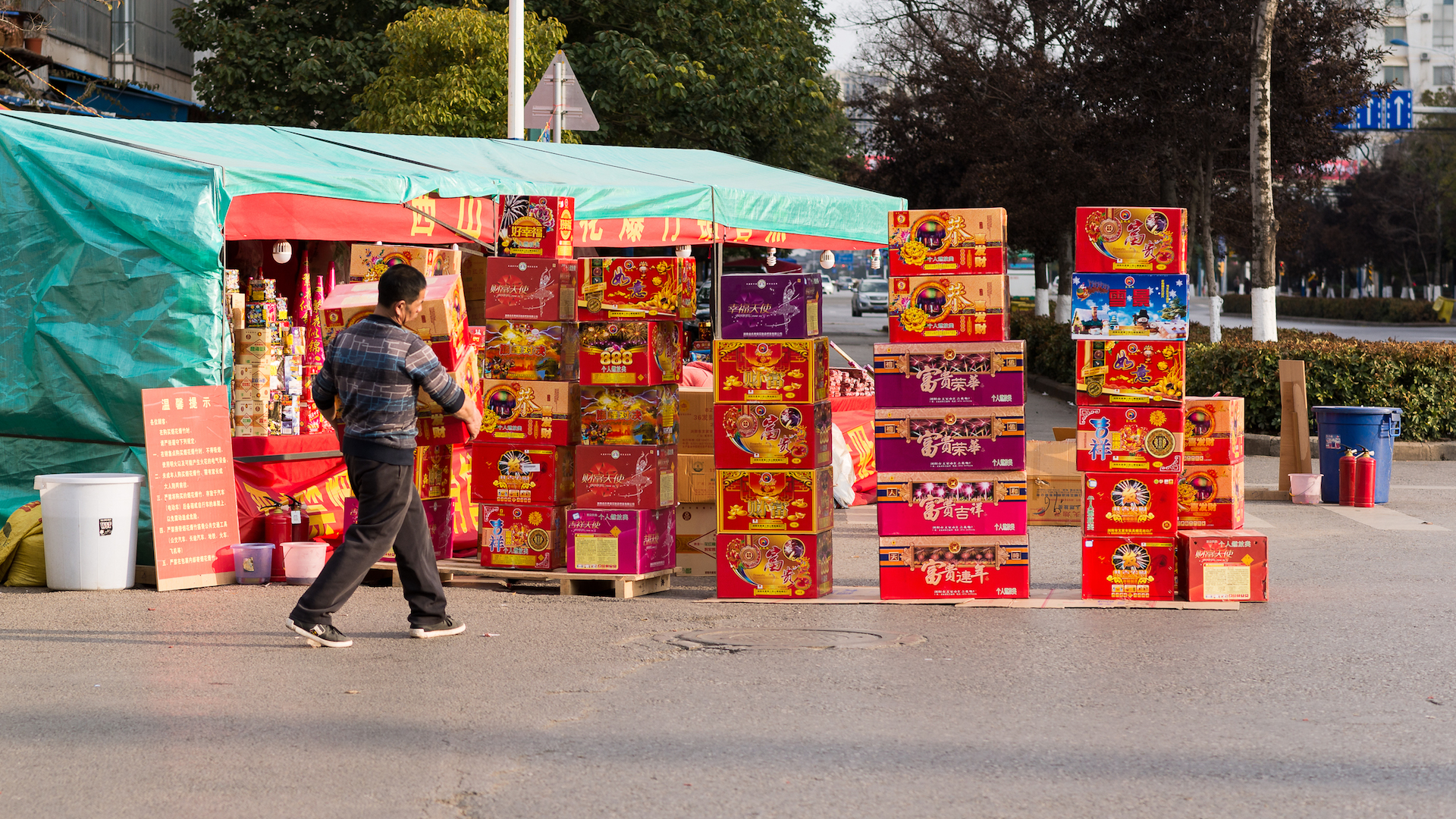
Photo by Luke In
8. The Fireworks
Legend has it that at midnight on the fourth night of the New Year, the money god, Cai Shen, comes back to earth to bestow wealth on whoever has the loudest and longest fireworks show. In some areas of China, the evening becomes a pyrotechnic competition, a chance to one-up the neighbors as they all vie for the prize.
The fireworks frenzy happens again when businesses reopen after the holidays. People set off a barrage of loud firecrackers at the doors of their businesses with the intention of scaring off the evil spirits they perceive to be lurking and to clear the way for prosperous business transactions in the coming year.
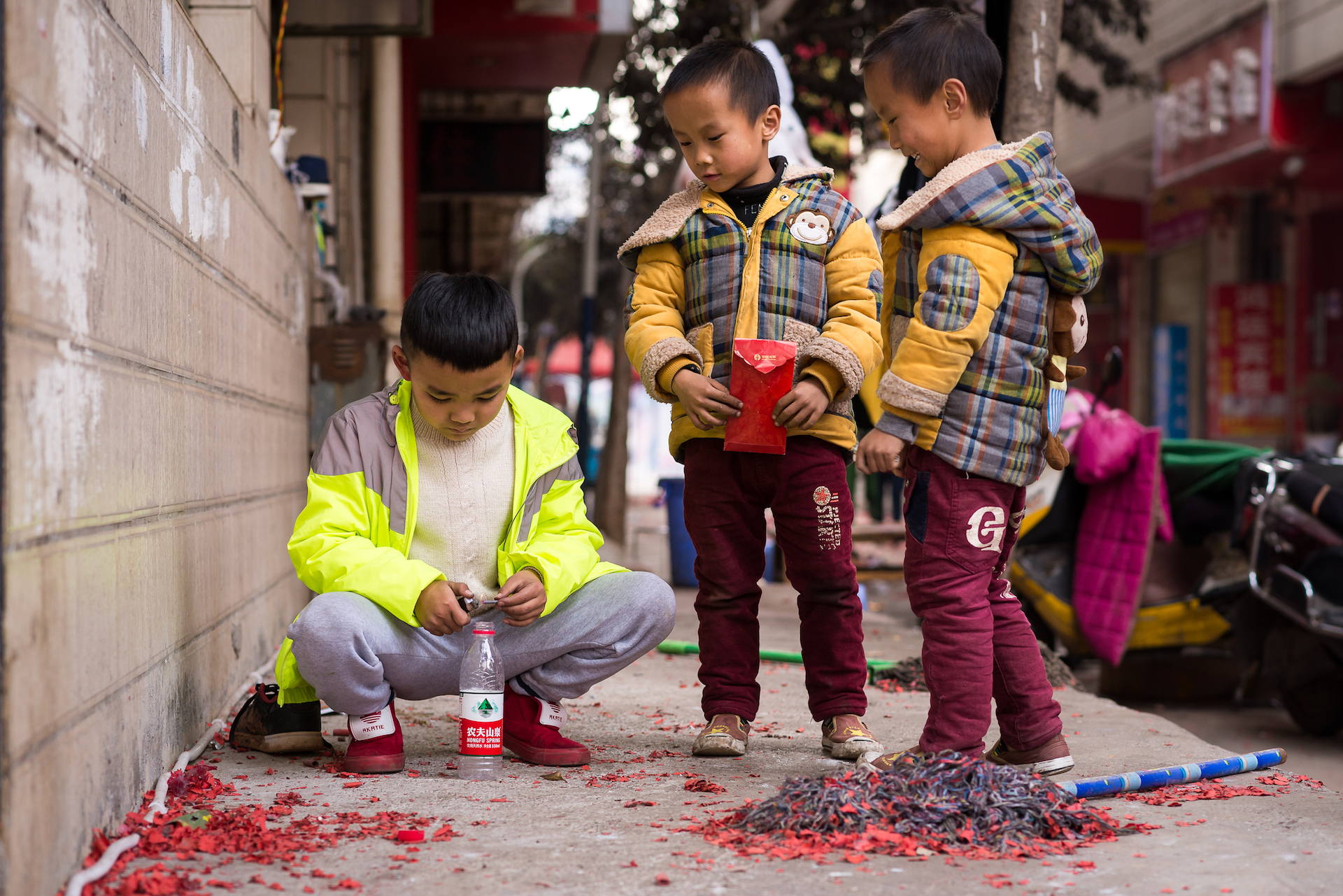
Photo by Luke In
Showing God’s Love to Chinese People
Though some holiday practices originate in fear of the spirit world, analyzing or debating the origins and superstitions as an entry point to a gospel conversation with a Chinese person may be perceived as cultural misinterpretation or criticism. Consider using the holidays, instead, to show friendship and exhibit interest in Chinese heritage.
Acknowledge their holiday with a Facebook post, a greeting card, a dinner invitation, or an outing. Learn more about the traditions associated with the festival so you’ll be able to converse about it.
On Chinese New Year, twenty-two out of every hundred people on earth will stop what they are doing to celebrate. If for no other reason than that, this holiday deserves our attention.
Emily Stockton lives overseas and writes for IMB. You can follow her on Twitter @EmilyStockton.

